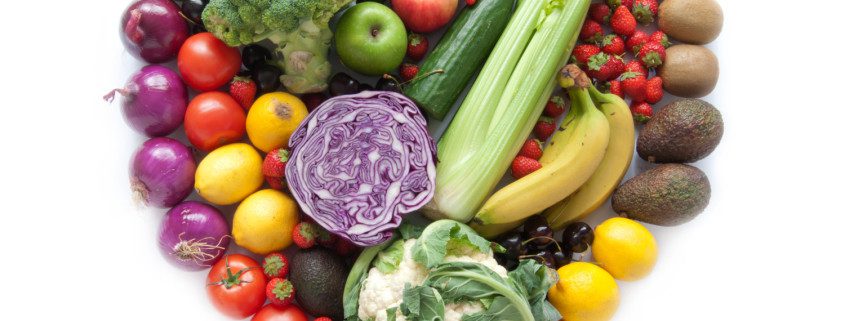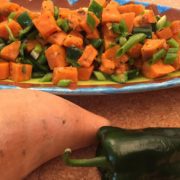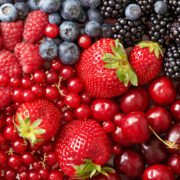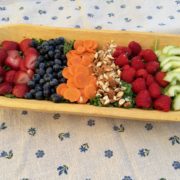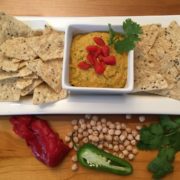SuperFoods: The backbone for a healthy life
Superfoods are nutrient-dense (lots of nutrition per calorie) whole foods. These are the foundation for my cooking. And in my world, food must be delicious, let’s take these wonderful Mother Nature foods and create meals we love to eat.
[su_expanding_quote_without_link alignment=”right” source=”SuperFoods Rx” full_quote=”Food is pleasure. When you sit at the table you’re not a patient, you’re a person. Eating should be a satisfying part of your life” short_quote=”Eating should be a satisfying part of your life”]We all know the macronutrients – carbs, proteins, and fats. But it’s the lesser-known micronutrients that seem to really boost our health. I think they also significantly increase flavor and color in our food.
Micronutrients are vitamins, minerals and phytonutrients (phyto from the Greek word “plant”). Phytonutrients have significant health benefits:
- Facilitate the ability of our cells to communicate with one another
- Have anti-inflammatory abilities
- Can prevent mutations at the cellular level and prevent the proliferation of cancer cells
For a crash course in superfoods, here are my notes from the book SuperFoods Rx: Fourteen Foods that Will Change your Life” by Steven Pratt MD and Kathy Matthews.
Some foods are proven to help prevent cardiovascular disease, type II diabetes, hypertension, certain cancers, and dementia. These nutrient-rich foods should be the backbone of our daily diet.
[su_expanding_quote_without_link alignment=”right” source=”SuperFoods Rx” full_quote=”The right foods can actually change the course of your biochemistry. They can help to stop damage at the cellular levels that can develop into disease…Their effects on your body make the difference between the development of chronic disease and a vigorous extended life. They can prevent or greatly reduce your risk of vision problems, heart disease, stroke, diabetes and a host of other killers.” short_quote=”The right foods can actually change the course of your biochemistry.”]- Beans: Pinto, navy, Great Northern, lima, garbanzo, lentils, green beans, sugar snap peas, green peas.
- lower cholesterol; combat heart disease, stabilize blood sugar, relieve constipation, diverticular disease, hypertension and type II diabetes.
- deliver a healthy dose of potassium, calcium, and magnesium, a mineral and electrolyte combination associated with a reduced risk of heart disease and hypertension.
- may help prevent cancer; beans contain phytoestrogens called “lignins” that may reduce the risk of cancer associated with estrogen levels
- Berries: purple grapes, cranberries, raspberries, currants, strawberries, blackberries, cherries, all berries fresh, frozen or dried.
- high levels of antioxidant phytonutrients – key players in neutralizing free-radical damage to cells and tissues
- seem to slow and even reverse degenerative diseases associated with an aging brain
- provide antioxidant known as ellagic acid that seem to blocks metabolic pathways that can promote cancer
- Cruciferous: Broccoli, Brussels sprouts, cabbage, kale, turnips, cauliflower, collards, bok choy, mustard greens, Swiss chard
- lower the risk of cancer
- boost the immune system, lowers the incidence of cataracts, supports cardiovascular health, builds bones
- bone builders
- rich source of phytonutrients, vitamins and minerals that help prevent heart disease
- Whole-grains: oats, brown rice, barley, whole-wheat, buckwheat, rye, millet, bulgur, quinoa, kamut, wild rice, spel and couscous
- lower risk of coronary heart disease, stroke, diabetes, hypertension, and osteoporosis
- can reduce risk of cancer
- benefit the heart, reducing risk of heart strokes, coronary artery disease and lower blood pressure
- Citrus: orange, lemons, grapefruit, kumquats, tangerines, limes
- inhibit cancer cell growth, protect DNA, promote cardiovascular health, act as anti-inflammatory and are antimicrobial.
- contain anticancer agents, the anticancer power of oranges is most effective when the whole fruit is eaten
- Pumpkin: carrots, butternut squash, sweet potatoes, orange bell peppers
- pack an abundance of disease-fighting nutrients including potassium, magnesium and vitamins C and E.
- contain synergistic combination of carotenoids (phytonutrient) that protect from free radicals, modulate our immune response.
- decrease the risk of various cancers, lower rates of heart disease and decrease risk of cataracts and molecular degeneration
- Salmon: Alaskan halibut, canned tuna, sardines, herring, trout, sea bass, oysters and clams
- rich in Omega-3 which reduces risk of coronary artery disease, controls hypertension , prevents age-related macular degeneration, mitigates autoimmune diseases such as lupus and rheumatoid arthritis, relieves depression mental problems such as attention deficit hyperactivity, dementia and Alzheimer’s
- canned wild Alaskan salmon is a great budget-conscious option, also canned tuna or canned sardines.
- Soy: tofu, soymilk, soy nuts, edamame, tempeh, miso
- can help prevent cardiovascular disease, cancer and osteoporosis as well as help relieve menopausal and menstrual symptoms
- avoid processed soy foods; read food labels!
- Spinach: kale, collards, swiss chard, mustard greens, turnip greens, romaine lettuce
- protect the eye from harmful light rays and help prevent macular degeneration and cataracts
- prevent oxidized cholesterol from building up in blood vessel walls, and reduce risk of heart disease
- stabilize blood sugar, play an anti-aging role and enhance the immune system
- studies found that the more spinach consumed, the lower the risk of almost every type of cancer; phytochemical protect our DNA, repair damaged DNA, promote healthy cell replication, boost the immune system, detoxifies pollutants, and reduces chronic inflammation
- Tomatoes: red watermelon, pink grapefruit, papaya, guayava, persimmons
- studies have shown that the higher the tomato intake, the lower the cancer risk, particularly prostrate cancer
- canned, tomato sauce and paste are also effective
- Turkey
- has niacin, vitamins B6 and B12 good for energy production. Niacin seems to lower the risk of heart attacks
- rich in zinc, critical for a healthy immune system
- good source of selenium (mineral), critical to thyroid hormone metabolism, and immune function
- Walnuts: almonds, sesame seeds, pumpkin and sunflower seeds, pecans, hazelnuts, cashews, pistachio nuts
- can reduce risk of coronary heart disease, diabetes, and cancer
- nuts are high in calories but have extraordinary health benefits, eat in moderation. Add a few nuts to your daily diet, substituting for other foods, like cheese
- Yogurt and kefir
- provide a range of health benefits that include live active cultures, protein, calcium and B vitamins which work together
- strengthen the immune system and help prevent infection and inflammation
- help absorb nutrients
- effective health-promoting yogurt must contain live active cultures. Check the labels, the more beneficial cultures listed, the better
- buy plain nonfat or low-fat yogurt instead of flavored yogurts which are high in sugar and additives
- Tea
- tea has antiviral, anti-inflammatory, anti-cavity, anti-allergy properties
- a daily tea habit promotes health and prevents disease
- can decrease risk of cancer by inhibiting formation and growth of tumors, prevent cell mutation and deactivate carcinogens.
- tea consumption is associated with lowered risk of heart disease and stroke; also plays a role in keeping the lining of blood vessels plaque free, which lessens risk of coronary heart disease
For more information about super foods

